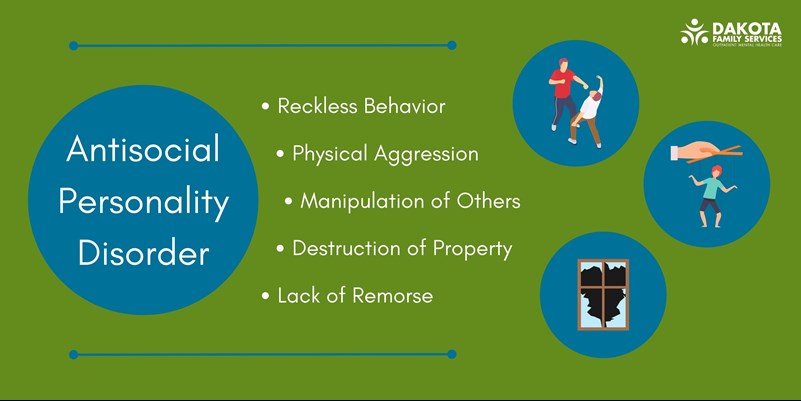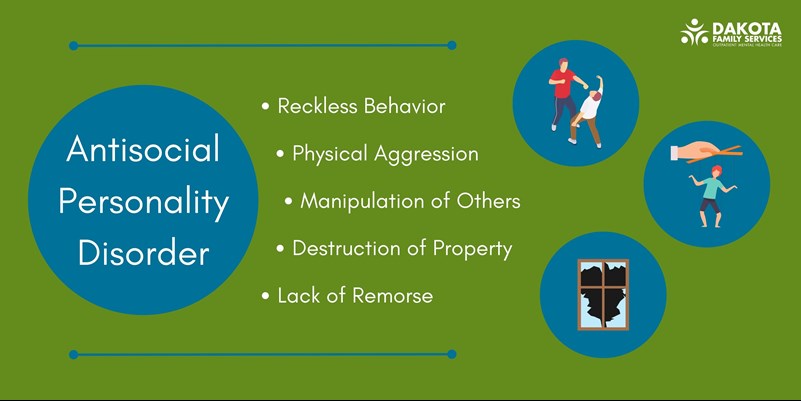Understanding Antisocial Personality Disorder
Is it any wonder that those with Antisocial Personality Disorder (ASPD) often find themselves entangled in the criminal justice system? ASPD, characterized by a blatant disregard for societal rules and the rights of others, manifests early in life, typically in adolescence. Such individuals can exhibit a charming facade while masking a blatant lack of empathy.
Diagnosed in approximately 3% of the general population, ASPD has roots that can be traced back to the early 20th century, when psychiatrists began recognizing patterns of chronic antisocial behavior. This disorder, previously termed “psychopathy” or “sociopathy,” remains challenging to treat. Early intervention and structured therapy have shown potential in mitigating some of its more harmful manifestations.

Defining Antisocial Personality Disorder
Antisocial Personality Disorder (ASPD) is a mental health condition where a person consistently exhibits behaviors that are against societal norms. They often disregard the rights and feelings of others. This disorder usually begins in childhood or early adolescence.
A person with ASPD may seem charming or pleasant at first. However, they may engage in deceitful or manipulative behavior. These actions are typically for personal gain or pleasure.
Common symptoms include persistent lying, impulsivity, and a lack of remorse for harming others. People with ASPD can also display aggressive behavior. Emotional manipulation is a frequent tactic used to control or exploit situations.
ASPD affects about 1-4% of the population. It is more commonly diagnosed in men than women. The exact cause of ASPD remains unknown, but both genetic and environmental factors play a role.
Identifying Symptoms of ASPD
Identifying symptoms of ASPD is crucial for early diagnosis and intervention. These symptoms often become noticeable in childhood or adolescence. Understanding these signs can help in addressing the disorder effectively.
Behavioral Symptoms
Behavioral symptoms of ASPD often include a disregard for social norms. Individuals may engage in deceitful behaviors like lying and stealing. They frequently act impulsively, without considering the consequences of their actions.
Aggressiveness is another common trait. People with ASPD might engage in frequent fights or physical assaults. They may also show a lack of responsibility towards work or financial obligations.
Another key feature is a lack of remorse. They often show no guilt or regret after harming others. This can make it challenging for them to maintain healthy relationships.
Emotional Symptoms
The emotional symptoms of ASPD can be subtle but significant. A constant lack of empathy is a hallmark trait. They may find it hard to understand or care about the feelings of others.
People with ASPD might experience shallow emotions. Their feelings may not be genuine and can change rapidly. This emotional instability is often used to manipulate those around them.
Another sign is a sense of superiority. They often believe they are better or smarter than others. This can lead to condescending or belittling behavior towards others.
Social Symptoms
Socially, individuals with ASPD may have chaotic relationships. Their tendency to exploit others causes ongoing conflicts. These relationships often end in unhappiness and disappointment.
They also tend to isolate themselves. Isolation can be a result of broken relationships and mistrust. Over time, this can lead to severe loneliness and depression.
Moreover, their behavior often leads to legal issues. They may have a long history of arrests or criminal activities. This further complicates their social interactions and prospects.
Causes of Antisocial Personality Disorder
Antisocial Personality Disorder (ASPD) has a multifaceted origin. Genetic factors play a significant role in its development. Studies suggest that those with a family history of ASPD are more likely to develop the disorder.
Environmental factors are equally crucial. Childhood trauma, such as abuse or neglect, can increase the risk of ASPD. Negative social experiences can also contribute to the disorder.
Biological factors like brain structure and function have been studied. Some research indicates abnormalities in the prefrontal cortex. This area of the brain is responsible for decision-making and impulse control.
Psychological traits are another cause. People with ASPD often exhibit low levels of empathy and high levels of aggression. These traits can be linked to inadequate emotional development during formative years.
How ASPD Affects Relationships
Antisocial Personality Disorder (ASPD) significantly impacts personal relationships. Individuals with ASPD often struggle to form lasting bonds. Trust and respect are typically lacking in their interactions.
Friends and family members can find their behavior unpredictable. Frequent lying and manipulation erode trust over time. This causes emotional strain on everyone involved.
Romantic relationships are particularly challenging. People with ASPD may engage in infidelity or deceit. They often prioritize their needs over their partner's.
Parental relationships also suffer. ASPD can manifest as neglect or abusive behavior towards children. This leads to a toxic family environment.
Professional relationships decline as well. Deceptive and aggressive behaviors can lead to job loss or demotion. Coworkers might find it difficult to collaborate effectively.
Long-term social isolation is a common result. The inability to maintain healthy relationships leads to loneliness. This, in turn, exacerbates their antisocial behaviors.
The Intersection of ASPD and Crime
The connection between Antisocial Personality Disorder (ASPD) and crime is well-documented. Individuals with ASPD often exhibit behaviors that are against societal norms. This includes frequent involvement in criminal activities.
Research shows that those with ASPD are more likely to have a criminal record. They may engage in activities like theft, fraud, and assault. Their impulsivity and disregard for the law contribute to these actions.
ASPD is linked to both violent and non-violent crimes. Violent crimes might include physical assaults or even murder. Non-violent crimes often involve deceit, such as identity theft or embezzlement.
A significant number of people in prison have been diagnosed with ASPD. This disorder is more prevalent in the criminal population than in the general public. The lack of remorse seen in ASPD can make rehabilitation challenging.
Efforts to treat ASPD among offenders include therapy and behavioral management programs. However, success rates vary. The key is early diagnosis and structured treatment plans.
Understanding the link between ASPD and crime can help in developing better prevention and treatment strategies. This not only aids the individual but also protects society. Addressing the root causes remains crucial for reducing criminal behavior.
Diagnosing Antisocial Personality Disorder
Diagnosing Antisocial Personality Disorder (ASPD) involves a thorough evaluation. Mental health professionals use several criteria from the Diagnostic and Statistical Manual of Mental Disorders (DSM-5). The diagnosis typically includes a detailed interview and review of the individual's history.
One key aspect is assessing behavior patterns. Professionals look for signs of deceit, impulsivity, and aggression. These behaviors usually manifest by early adolescence.
Family and medical history are also considered. A family history of mental disorders can be a red flag. Past traumatic experiences, such as abuse, are also taken into account.
Personality assessments and psychological tests are part of the diagnosis. These tools help evaluate traits like lack of empathy and remorse. The results provide more evidence for a possible diagnosis of ASPD.
Diagnosis is not always straightforward. Symptoms of ASPD can overlap with other mental health disorders. This makes it essential for professionals to conduct a comprehensive evaluation.
Early diagnosis and intervention are crucial. Identifying the disorder in its early stages allows for more effective treatment. Timely intervention can improve outcomes and reduce the impact on personal relationships and society.
Treatment Options for ASPD
Treating Antisocial Personality Disorder (ASPD) can be challenging. Cognitive Behavioral Therapy (CBT) is often used. CBT helps individuals recognize and change harmful patterns of thought and behavior.
Medication may also be prescribed. While there are no drugs specifically for ASPD, medications can help manage symptoms like aggression and anxiety. Commonly used medications include mood stabilizers and antipsychotics.
Group therapy offers another avenue for treatment. Interacting with others facing similar challenges can provide support and new perspectives. Group settings help build social skills that are often lacking in individuals with ASPD.
- Individual Therapy: Focuses on personal issues and coping strategies
- Family Therapy: Involves family members to improve communication and relationships
- Vocational Training: Helps develop job skills and improve employability
Sustained treatment plans tend to produce better outcomes. Regular follow-ups with mental health professionals are essential. This allows for adjustments in therapy as needed.
The role of supportive relationships cannot be overstated. Friends, family, and community resources play a critical role in the recovery process. Their encouragement helps keep individuals committed to their treatment plans.
Impact of ASPD on Society
Antisocial Personality Disorder (ASPD) has far-reaching effects on society. The disorder leads to increased criminal activity and legal costs. Individuals with ASPD often require more law enforcement resources.
Workplace disruptions are common. People with ASPD can create hostile work environments. Their behaviors can lead to lower productivity and higher employee turnover.
Healthcare costs also rise due to ASPD. Individuals often require long-term mental health care. This places a significant burden on healthcare systems.
Family and social disruptions are another consequence. Relationships with family and friends can be strained or broken. This can result in isolation and societal disengagement.
Educational settings are also affected. Students with ASPD can disrupt learning environments. This can impact the overall educational experience for others.
Addressing the societal impact requires a comprehensive approach. Early diagnosis, effective treatment, and community support are crucial. Together, these efforts can help mitigate the negative effects of ASPD on society.
Frequently Asked Questions
Understanding Antisocial Personality Disorder (ASPD) can be complex. Below are common questions and detailed answers to help deepen your knowledge on this topic.
1. What are the most common symptoms of ASPD?
The most common symptoms include a consistent pattern of deceitful behavior, impulsivity, and irritability. People with ASPD often show no remorse for their actions and disregard societal norms.
These behaviors usually start in childhood or early adolescence and become more evident over time. Identifying these signs early helps in managing the disorder effectively.
2. How is Antisocial Personality Disorder diagnosed?
Diagnosing ASPD involves thorough evaluations by mental health professionals using criteria from the DSM-5. This includes assessing behavior patterns like chronic lying, aggressiveness, and lack of empathy.
The diagnosis also considers family history and past traumatic experiences that might contribute to these traits. Psychological tests help provide additional insights into the individual's personality traits.
3. Can Antisocial Personality Disorder be treated effectively?
Treating ASPD is challenging but possible through various methods like Cognitive Behavioral Therapy (CBT). CBT aims to change harmful thought patterns and behaviors associated with the disorder.
Medications for related symptoms such as mood stabilizers may also be prescribed. Long-term treatment plans and supportive relationships greatly improve outcomes.
4. Is there a genetic link to developing ASPD?
Research indicates a significant genetic component in developing ASPD. A family history of similar disorders can increase an individual's likelihood of manifesting these traits.
However, environmental factors like childhood trauma also play a crucial role in the onset of this disorder. Understanding both aspects is essential for comprehensive treatment approaches.
5. How does ASPD affect personal relationships?
ASPD severely impacts personal relationships due to chronic manipulation, deceit, and lack of empathy. Romantic partners often face issues like infidelity and emotional abuse.
This can create a toxic environment that leads to frequent conflicts and breakups. Family dynamics also suffer as loved ones struggle to cope with unpredictable behaviors.
Conclusion
Antisocial Personality Disorder (ASPD) presents unique challenges in diagnosis and treatment. Understanding its symptoms and causes is crucial for effective management. Early intervention and comprehensive care can greatly improve outcomes.
By addressing both genetic and environmental factors, we can better support individuals with ASPD. Collaboration between mental health professionals, families, and society is essential. Together, we can mitigate the broader impacts of this disorder.
